Which Lucky Animal Suits You? (Top 20)
Are you looking for a specific animal?
We have selected the best lucky animals from around the world and the most symbolic mythical creatures, all to help you choose the lucky charm that will bring you the most luck.
For easier reading, we have divided this article into paragraphs, each describing the use of a particular animal as a good luck charm.
If you feel a connection with one or more of these animals from around the world, we could say that you are probably someone who has an ability to sense certain energies.
Contents :

1st lucky animal: the Rabbit
The rabbit is one of the most important animals in English culture.
For centuries, it is in this corner of the world that our lucky animal has been most represented.
There is even an old superstition that claims that if you repeat the word "Rabbit" three times in a row on the first day of the month, good fortune will follow you until its end.
In European cultures in general, the rabbit is a symbol of fertility and prosperity.
It is a tradition to give a white stuffed lucky rabbit as a gift to a small child. This actually symbolizes our wishes for her to have a happy life.
The rabbit is also a symbol of wealth. .. but hold on, you don't need to own one as a pet to attract fortune to you.
The Americans have found a much more practical way to make this strange power work.
You've probably heard that many people around the world wear rabbit feet for good luck.
For this lucky symbol to work, however, it must be a left paw!
An interesting fact is that for years the rabbit has been the favorite lucky animal of gamers around the world.
Besides, many of them simply wouldn't dare enter a casino without having a symbol in their pocket.
Want to give it a try and see if it works for you?
This might just be a good idea...
If you're interested, here's a rabbit's foot that we found for you.

2nd lucky animal: the goldfish
The goldfish is a lucky animal common to many countries around the world.
However, it is in Slavic cultures that its place is most important.
There are indeed many fairy tales, featuring a goldfish, ready to fulfill three wishes of anyone who manages to catch it.
Even if this animal does not have all the powers that some attribute to it, the goldfish nonetheless remains one of the most powerful lucky charms in the world.
It is one of the eight sacred symbols of Buddhism and represents fertility, harmony and wealth.
Even the ancient Greeks believed that goldfish could attract good luck and strengthen relationships in general, and marriages in particular.
The ancient Egyptians believed almost the same thing and kept a goldfish in their households as a lucky animal.
Another interesting fact to highlight is that the goldfish is also present in Chinese Feng Shui.
According to many specialists in this philosophy of life scattered around the world, the goldfish is a lucky animal believed to bring good luck because its movements can allude to the way chi (energy in Chinese) moves.
There is no particular rule as to how many lucky fish you should have.
However, odd numbers are believed to attract more positive energy.
Do you want to know if the goldfish would bring you luck too?
Head to your nearest pet store: you can easily find this lucky animal anywhere in the world.

3rd lucky animal: the Elephant
The elephant is one of the most popular lucky animals in the world.
People often buy porcelain elephant figurines, and place them facing the door to attract happiness to their home, and repel bad luck.
The elephant is a particularly coveted and popular lucky animal in Asia, where many business owners place elephants at the entrance to their offices.
These statues would bring fortune and stability, while protecting the company from setbacks.
According to many myths and legends, elephants are considered to be among the wisest and most intelligent animals. .. hence their glorification by humans for centuries.
Thus, it is not surprising that in Hinduism, lucky elephants are depicted as sacred animals and related to some of the most powerful gods.
You've probably heard of Ganesh, the elephant-headed Hindu god.
You will surely find many statues and images of elephants in India, used as symbols of protection, good luck and happiness.
Here, for example, is a sandstone statue of the god Ganesh which well illustrates this Indian tradition.
(NB: If you ever go to Thailand, be sure to visit the incredible lucky elephant statue at Erawan Sanctuary, renowned around the world for its exceptional powers.)

4th lucky animal: the Frog
The frog is one of the most famous Chinese lucky animals.
It is believed to bring fortune and prosperity.
In fact, you've probably seen a certain three-legged silver frog before.
Found in many people's homes as a lucky animal, the Jin Chan statue is said to attract fortune and prosperity to all who place it in their home.
According to legend, a man named Lu Hai once saved a three-legged frog that couldn't jump out of a well.
Out of gratitude, every day, the frog brought him a piece of gold from a treasure that he had kept secret until then... suffice to say that Lu Hai became a very rich man !
The three-legged frog statuette is a reminder of this legend, and therefore attracts positive energy by reminding us on a daily basis that every good deed is rewarded.
However, there is a simpler reason why the frog is considered a lucky animal in some parts of the world.
Frogs are usually associated with rain.
However, when it rains, fruits, vegetables and crops grow… so people are no longer hungry.
If you are going somewhere on a trip, you can also take a frog with you as a lucky animal.
According to some Japanese beliefs, it will protect you throughout your journey.

5th lucky animal: the Horse
For years, horses have been among the most popular and famous animals. This can be explained by their pride, strength and speed.
Thus, they are often seen as a symbol of freedom and power.
Their presence in many stories of Greek mythology made them even more appreciated.
So, people all over the world slowly began to consider the horse to be a lucky animal.
You've probably heard the story of the legendary birth of the winged horse Pegasus. This sacred animal was part of many heroic adventures in Greek mythology.
Additionally, according to some legends, horses could see things that humans could not. This lucky animal could therefore protect us from evil forces.
So, it's no surprise that the horseshoe is still considered a good luck charm for the whole world, and many people hang one above the front door of their home.
Maybe you could attract good luck by always carrying a small horseshoe with you, who knows?

6th lucky animal: the Pig
You might be surprised, but many cultures believe that the pig is a lucky animal.
In fact, the pig is a symbol of prosperity, luck and fertility.
It is part of the Chinese zodiac and its symbolism is also very popular in Germany, Ireland and the Nordic countries.
It's no coincidence that people keep their money in this type of pig-shaped piggy bank !
Feeding the piggy bank with coins symbolizes the efforts we are making for a prosperous future.
You can attract its positive energy into your life by wearing colors that symbolize metal like white and gold and fire like red, orange and pink.
In addition, in China, it is also believed that the pig can attract great luck for self-employed people.
So why not constantly wear a little necklace representing a pig?
You will thus check if, as they say, this lucky animal is one of the most powerful in the world.

7th lucky animal: the Ladybug
The ladybug is one of the most popular lucky animals in the world.
It has a special meaning in almost all cultures and its ability to attract luck is known even to children.
According to custom, if a ladybug lands on you, you must remain still and count the spots on its back.
Their number will reveal how many months of happiness you will be lucky enough to experience.
There is also another belief stating that if a ladybug lands on you, you have the right to make a wish.
The number of spots on this lucky animal will here reveal how many months it will take for your wish to come true.
Ladybugs are also often used as a talisman for joy and prosperity.
Be careful though, this lucky charm is double-edged... If you harm a ladybug, bad energy could follow you for a long time.
Also rest assured, you don't have to wait until summer to see a real ladybug, and be able to make a wish.
All you need to attract its energy to you is a small object in its shape.

8th lucky animal: the Beetle
The particular species of beetle depicted in the many amulets and works of art of ancient Egypt was the "Scarabaeus sacer", or "great sacred beetle".
This lucky animal was famous for its habit of rolling balls of dung along the ground and finally depositing them in its burrows.
The female beetle laid her eggs in the dung ball. When they hatched, the larvae used the ball to feed. When the dung was consumed, the young beetles came out of the hole.
It seemed to the ancient Egyptians that young beetles emerged spontaneously from the burrow where they were born.
Therefore, they were worshiped as "Khepera", which literally means "he came out".
This aspect of the scarab was associated with the creator god Atum.
The ray-shaped antenna on its head and its practice of rolling dung meant that the beetle also carried within it the symbolism of the sun.
The scarab god Khepera was believed to push the setting sun along the sky in the same way as the scarab with its ball of dung.
In many lucky charms around the world, the beetle is depicted pushing the sun along its path across the sky.
During the reign of the pharaohs, this type of scarab frozen in resin was often placed on the heart of the mummified deceased.
These animal lucky charms were often marked with a spell from the "Book of the Dead" which implored the heart not to bear witness against man during the Last Judgment.

9th lucky animal: the Bee
As we often say… the powers and lucky charms associated with animals often depend on personal interpretation.
My point is that the bee is not everyone's favorite symbol.
I have a friend who is absolutely terrified of bees, and she runs away screaming at the first bzzz.
But in China for example, the bee is seen as a wonderful lucky animal to boost our career and stand out in business.
This has a lot to do with how the bee always works with discipline and patience.
In Celtic iconography, the bee is a messenger of the gods.
More precisely, the bee sends messages from the oak god and Taranis, master of the sky and thunder. Therefore, the bee is considered a particularly effective lucky animal.
In certain belief systems (Christianity and Buddhism in particular), the bee symbolizes the renewal of a new life.
It is also a lucky charm appreciated by pregnant women, or those trying to conceive.
Bees once had the reputation of, like the Virgin Mary, having received the grace of immaculate conception.
It was believed that, rather than laying eggs, they brought back their babies which they found on the surface of flower petals.
This, and the idea that honey is like a sacred food ideal for newborns, has made the bee one of the world's most renowned lucky animals for aiding in childbirth and birth. support for the child's first years.

10th lucky animal: the Cat
What I mean is that black cats are known to bring bad luck in many traditions of the lucky charm world.
But if we look to the ancient Egyptians, we see that the cat was not only associated with luck, but was downright worshiped.
In fact, it was a crime to intentionally kill a cat…a crime sometimes punishable by death!
In Norse Viking mythology, the cat was a lucky animal believed to help marriages be happy.
This comes from the fact that the cat was a symbol of Freya, the goddess of love. Cats are therefore often represented in Nordic Viking art pulling their chariot.
Some historians say that Freya was denounced as a witch by Christians who were trying to abolish paganism, and therefore in particular Viking traditions.
By being associated with Freya, cats have also become symbols of demons in Christian religious iconography.
Bad luck for them! However, here is a historical clue as to why felines are often considered bringers of bad omens.
It is also interesting to note that these animals are depicted with witches in pop culture (such as decorations at Halloween).
In their original tradition, the Japanese viewed the cat with suspicion and disgust. This perspective has changed over generations.
Gradually, lucky charms representing this animal emerged in the Japanese archipelago.
You can generally find this Japanese lucky animal in Japanese shops and restaurants.
He always has one paw raised which he waves, making a welcome sign.
If the right paw beckons, it symbolizes good luck in trade and business.
Having the left paw in the air means this lucky animal will attract customers from all over the world.

11th lucky animal: the Dolphin
Dolphins are lucky animals common to many cultures.
They are found in particular in ancient Greece, Turkey, Egypt, Italy and the United States.
For centuries, Christians and Native Americans have viewed dolphins as symbols of protection and used their images and depictions as good luck charms.
16th century sailors were happy to encounter a dolphin in the sea because this lucky animal meant that the land of the new world was near, and that good fortune was coming.
It is therefore not surprising that many myths and legends claim that dolphins are the saviors and protectors of ships and sailors.
For example, according to a Greek myth, the god Dionysus one day transformed into a dolphin before visiting the mortals present at the sanctuary of Delphi.
The name dolphin is also believed to come from “ delphi, ” which is the translation of the Greek word meaning “womb.”
Tradition therefore attributes rather feminine and peaceful qualities to dolphins.
Nowadays, it is believed that keeping a porcelain dolphin figurine in your home is one of the easiest ways to attract good luck to your home.
Indeed, the powers of this lucky animal have amazed the whole world throughout the ages.

12th lucky animal: the Cricket
The locust is one of the lucky animals in the Chinese world.
There is nothing more beautiful than a warm summer night, accompanied by the sweet song of the cricket.
Many cultures around the world have recognized the uniqueness of this scene and have seen the locust as one of the most special lucky animals.
This is particularly true in China, where the locust is easily among the top 5 of the population's favorite lucky animals.
This fact is also well illustrated in a famous Disney film: Mulan. The cricket is actually the main protagonist's pet.
However, China is not the only country in the world that considers this animal a powerful good luck charm.
For years, many European nations believed that locusts could bring fortune and wealth into homes.
This is why, even today, many people bring back a representation of this lucky animal as a souvenir from their vacation around the Mediterranean.
These beliefs are even stronger in Ireland, where locusts are even more respected.
The Irish, for example, believe that speaking badly and offending one of these lucky animals will bring bad luck to you wherever you go in the world.
On the other hand, cherish them and they will bring you luck and success, while keeping evil spirits away.

13th lucky animal: the Dog
I think I'm the luckiest man in the world because I have some remarkable dogs in my life.
But, as mentioned, lucky charms around the world are dependent on our personal opinion.
For example, take black dogs. Superstitions about black dogs range from omens of bad news to mentions of witchcraft.
In fact, if you look up animal shelter adoption statistics, black dogs are the least adopted.
Personally, this makes me want to adopt every black dog on the planet… but I digress.
Overwhelmingly, dogs are lucky animals associated with protection.
For many cultures, the dog is the guardian of the living and the dead. In Greek mythology, for example, Cerberus is a gigantic dog who guards the entrance to the Underworld.
Dogs are often used as funerary statues to protect the burial sites and spirits of those who have passed on to the next world.
In Native American tradition, the dog is a hero because he brought both fire and rain to the earth.
In China, the dog is an ideal lucky animal for preserving friendship and having strong relationships.
In Christianity, the dog is often represented with a shepherd at its side. It then symbolizes guidance, loyalty and unwavering devotion.
The Norse god Odin had two dogs (and two ravens as well) who were his advisors and helped him make difficult decisions.
Interestingly, in almost all cultures around the world that view the dog as a good luck charm, the dog is also believed to be particularly effective in protecting women and children in the family.

14th lucky animal: the Stork
There is a very old legend which explains to us that it is the stork that delivers babies to mothers. This makes the stork an ideal lucky animal for newborns and new mothers.
The origin of this myth comes from the first men to inhabit the European continent. They observed that the stork took their food out of ponds and lakes.
These bodies of water were considered "the womb of the earth", hence the link made between storks and childbirth.
Storks are also migratory birds, and their return in spring means a new life after winter. This therefore also makes the stork one of the world's lucky charms most associated with rebirth and renewal.
In many cultures, including Christianity, the stork was used to ward off evil spirits.
This is the result of its strange ability to hunt, catch and swallow snakes. Snakes are often considered bad omens, so a snake-eating stork equates to protection.
In Chinese tradition, the stork is a lucky animal associated with longevity, good health and a happy old age.
They were actually believed to live for hundreds of years (in truth, their life expectancy is around 70 years).
In the Tao, the stork is even a symbol of immortality.
In Egypt, storks were considered the carriers of human souls.
In Rome, the stork was a lucky animal associated with the family in general.
Many myths also indicate that young storks feed their parents. Hence, storks often symbolize honor and respect for our elders.
In the Netherlands, if a stork builds a nest on your roof, it's supposed to be a very good omen for everyone living underneath.

15th lucky animal: the Dolphin
Dolphins are lucky animals common to many cultures.
They are found in particular in ancient Greece, Turkey, Egypt, Italy and the United States.
For centuries, Christians and Native Americans have viewed dolphins as symbols of protection and used their images and depictions as good luck charms.
16th century sailors were happy to encounter a dolphin in the sea because this lucky animal meant that the land of the new world was near, and that good fortune was coming.
It is therefore not surprising that many myths and legends claim that dolphins are the saviors and protectors of ships and sailors.
For example, according to a Greek myth, the god Dionysus one day transformed into a dolphin before visiting the mortals present at the sanctuary of Delphi.
The name dolphin is also believed to come from “ delphi, ” which is the translation of the Greek word meaning “womb.”
Tradition therefore attributes rather feminine and peaceful qualities to dolphins.
Nowadays, it is believed that keeping a porcelain dolphin figurine in your home is one of the easiest ways to attract good luck to your home.
Indeed, the powers of this lucky animal have amazed the whole world throughout the ages.

16th lucky animal: the Cricket
The locust is one of the lucky animals in the Chinese world.
There is nothing more beautiful than a warm summer night, accompanied by the sweet song of the cricket.
Many cultures around the world have recognized the uniqueness of this scene and have seen the locust as one of the most special lucky animals.
This is particularly true in China, where the locust is easily among the top 5 of the population's favorite lucky animals.
This fact is also well illustrated in a famous Disney film: Mulan. The cricket is actually the main protagonist's pet.
However, China is not the only country in the world that considers this animal a powerful good luck charm.
For years, many European nations believed that locusts could bring fortune and wealth into homes.
This is why, even today, many people bring back a representation of this lucky animal as a souvenir from their vacation around the Mediterranean.
These beliefs are even stronger in Ireland, where locusts are even more respected.
The Irish, for example, believe that speaking badly and offending one of these lucky animals will bring bad luck to you wherever you go in the world.
On the other hand, cherish them and they will bring you luck and success, while keeping evil spirits away.

17th lucky animal: the Bat
Chinese culture is immensely rich and knows many lucky symbols. There is one that will now interest us: the bat.
Contrary to the dark, even downright evil image (thank you vampire films!) that we present in the West, the Chinese see this flying animal as an expression of luck, success and prosperity.
In fact, the bat is even the Chinese lucky animal par excellence. No other comes close to him.
From the earliest times of imperial China (several millennia ago), senior officials used it as a seal and as an emblem. Having a bat sewn onto one's dress was a sign of very high social status.
To understand the origin of this very original idea, we must look at the etymology of the word “bat”.
It actually turns out that in Chinese it’s pronounced “ fu. ” However, “fu” is also an expression which can mean “ luck, good fortune ”.
To top it all off, the philosophy of Feng Shui itself describes the bat as an exceptional lucky animal: wise people say that it knows how to find the places most concentrated in chi (synonymous with energy) to found their nests.
Some clairvoyants have even had fun trying to understand energies by observing the flight of bats... with surprising success, to say the least.
In short, when it comes to spirituality or lucky charms, this animal should not be taken lightly.

18th lucky animal: the Unicorn
The unicorn is Scotland's national lucky animal for good reason.
This mythical creature is a symbol of strength and purity. In many parts of the world, and it is considered lucky.
In Vietnamese culture, for example, the unicorn is considered a sacred animal.
It is believed to be a strong and faithful animal, and one that knows how to show great mercy.
Another interesting fact: for many years, many people from cultures around the world believed that this lucky animal really existed.
According to some sources, even the Greek philosopher Aristotle concluded that unicorns were real, but had no magical powers.
On the other hand, however, according to many legends, unicorns (real or not) were responsible for many almost miraculous events, and for the positive outcome of many seemingly problematic situations.
Nowadays, you can try to attract its positive powers by keeping a lucky unicorn statuette in your home or wearing a small piece of jewelry representing one.

19th lucky animal: the Dragon
The Chinese dragon represents an important part of the culture of this ancient nation. It is even one of the animals used in the Chinese horoscope.
According to legends, the ancient Chinese believed that the emperor was a direct descendant of dragons.
According to ancient beliefs, this lucky animal has a profoundly good nature, and is the master of rain and water.
Nowadays, the dragon is believed to bring protection, strength and good luck.
Considered one of the most powerful lucky charms in the world, you can find many dragon figurines in Feng Shui stores.
To make the most of its powers, place your dragon statuette in an open space, and make sure it faces the room.
This position will likely attract positive energy into your home and into your life.

20th lucky animal: the Phoenix
The Phoenix is believed to attract love and good luck.
According to legends, this lucky animal is a symbol of renewal, rebirth and overcoming darkness.
It is also interesting to note that in Feng Shui, the Dragon (ying) and the Phoenix (yang) are often depicted together because, in Chinese tradition, they complement each other and symbolize a happy marriage.
You could surely attract the positive energy of the phoenix by placing representations of this mythological animal in your home.
In the world of lucky charms, many Feng-Shui practitioners advise choosing a red phoenix figurine if you want to attract fame and success.
Place your lucky charm in a South-facing area of your home or office to attract prosperity and more opportunities.
For happiness in your marriage, place a statuette or any lucky representation of a phoenix facing the southwest.
Lucky charms featured in this article

Rabbit's Foot
See more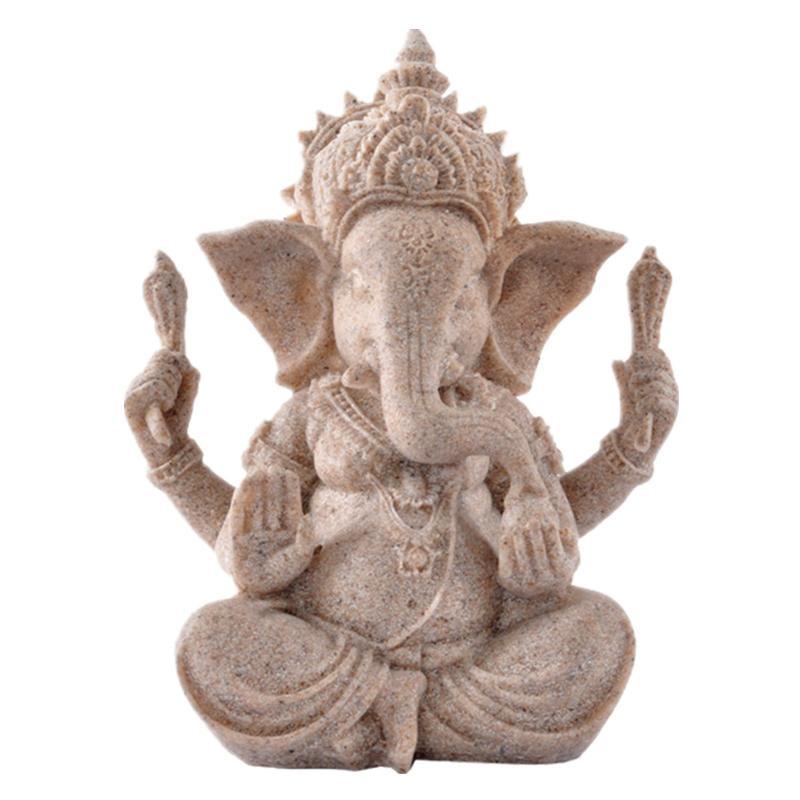
Sandstone Statue of the God Ganesh
See more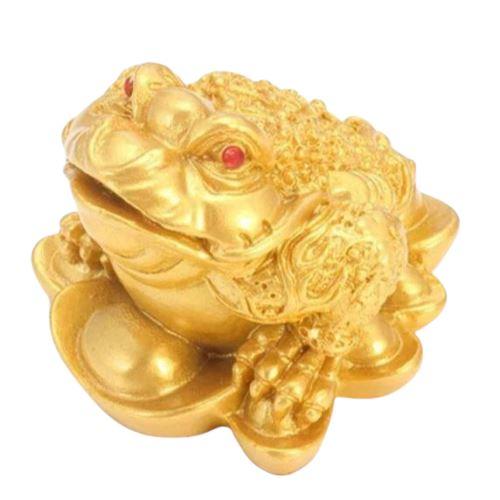
Statue of Jin Chan (or Golden Toad)
See more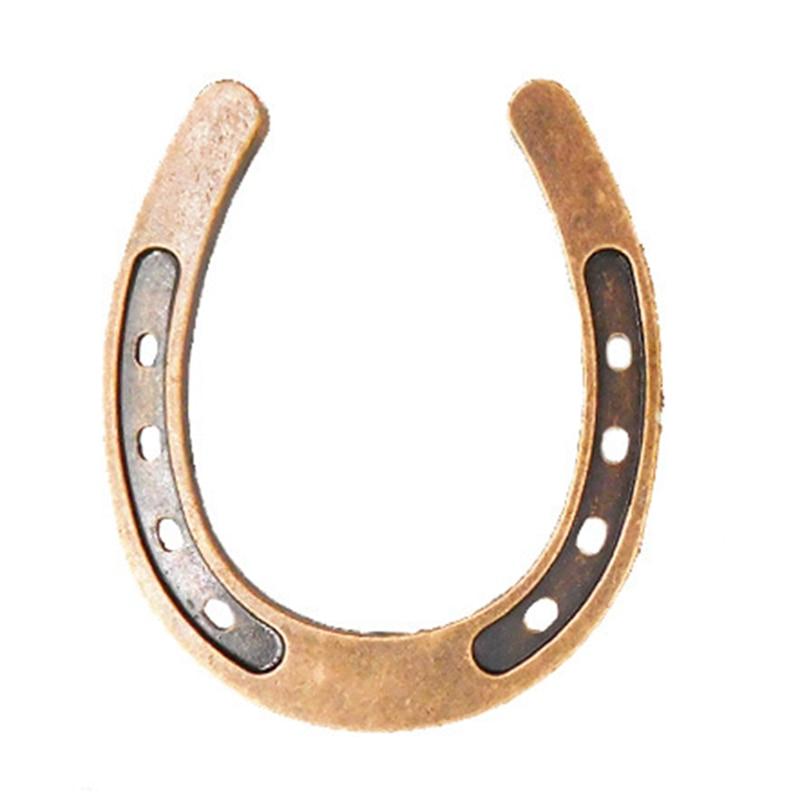
Horseshoe
See more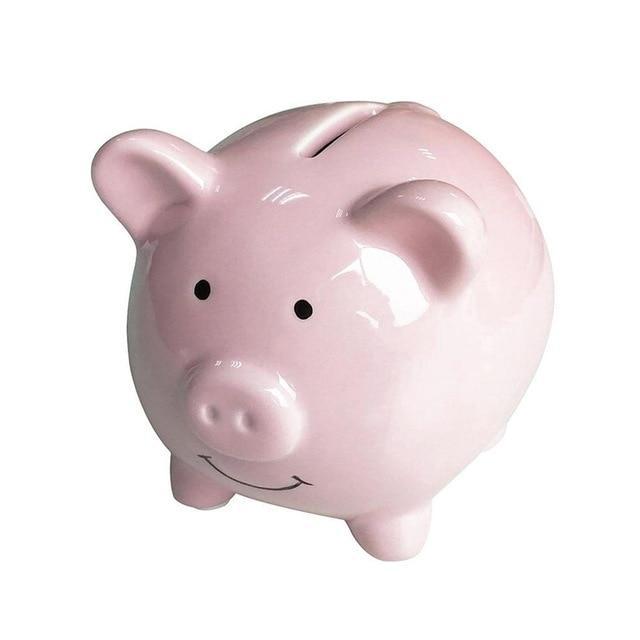
Pig Piggy Bank
See more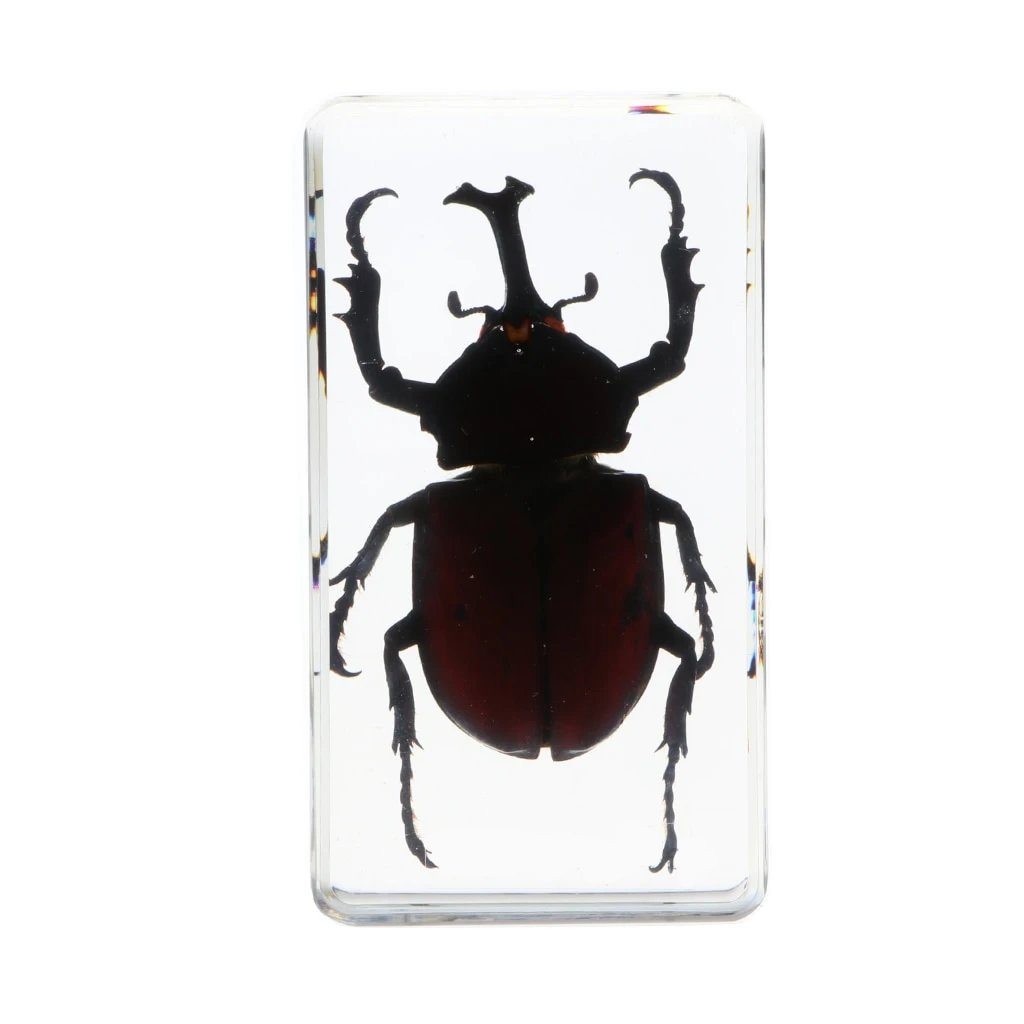
Beetle in Resin
See more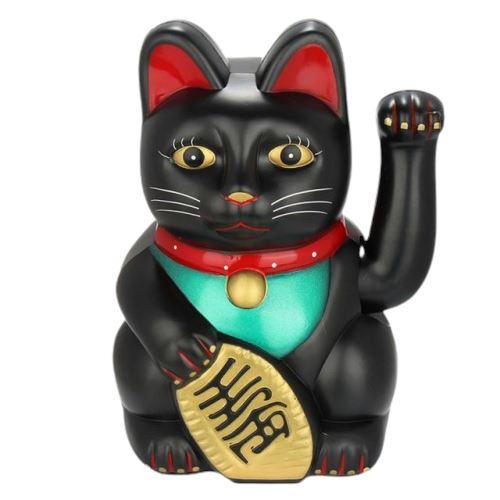
Classic Maneki Neko Statue
See more
